Dana International, the only transgender performer to ever to win Eurovision, is hoping to reclaim her title in Düsseldorf. This time she’s fighting with a “Ding Dong.” An ode to silent prayer and personal resolve, the song sets perseverance to a mid-tempo dance beat. Its clichéd message that hope springs eternal would normally leave me yawning. But channeled through Dana — an Israeli transgender singer who has journeyed from outcast to national treasure– that message takes on renewed depth and universality. “Ding Dong” becomes a solemn battle cry for those living on the margins of society.
WATCH:
Maybe the good old days/ Have come just for a moment/ And from now on everything will change/ And we’ll love, we’ll love… Ding dong say no more/ I hear silent prayer/ And it’s making me/ High and fly/ I know where to go/ And I’m coming now.
But with its cheeky nod to anatomy, “Ding Dong” also carries Dana’s personal story. Her return to Eurovision isn’t merely a publicity stunt, but an emotional return to the stage where she found her voice.
Born Sharon Cohen, she started out as a female impersonator performing in Tel Aviv nightclubs. Following her gender reassignment surgery in 1993, and the subsequent release of her first album, Israeli broadcasters refused to give her any airtime. In 1998, when she managed to win popular backing to represent Israel at Eurovision, Orthodox Jews were aghast. Shlomo Ben Izri, a member of the Knesset, called her “an abomination.” And Rabbi Shlomo ben Ivri said her sex change was an act worse than sodomy: “Choosing her is sending a message of darkness to the world.”
Europeans saw things differently. Her single “Diva” conveyed the hope that the transgender community could find strength through struggle. “She is all you’ll ever dream to find/ On her stage she sings her story,” she howled at the contest in Birmingham. “Pain and hurt will set her heart alight/ Like a queen in all her glory.” She walked away the winner, and her single went on to crack the Top 10 in five European countries. “My victory proves God is on my side,” she said afterward. “I want to send my critics a message of forgiveness … I am part of the Jewish nation.”
Now she’s one of Israel’s biggest stars, and an icon of national diversity. So much so that in 2009, Dana performed a bouncy disco number at a re-election rally for Israel’s Tzipi Livni. In a flood of air kisses, she told the Kadima leader: “I now formally invite you to the diva sisterhood.”
Prediction:
Dana competes in the second semi-final, and odds makers don’t think her emotional story will carry the same weight as it did in 1998. She’s currently listed as 40:1 to win her semi-final, and bookies suggest she’s straddling the cut-off to make the final. But as Dana explained in a recent interview, the bookies don’t always have a clue. “Back in ’98 “Diva” was #6, and after the first rehearsal it went down to #13, and it ended up in the first spot,” she said. “Those 3 minutes on stage are the most important thing for the eyes of Europe and then people decide if they like you or they don’t like you.”
I’m convinced that Dana will, in fact, advance to the final. Eurovision has never been about choosing the best song, but about choosing the best act. A catchy ditty will help you contend for the finals, but emotion and stage presence will secure the spot. Dana has once again teamed with French designer Jean Paul Gaultier to create two creations for Eurovision and, as her video shows, she still knows how to work her assets all these years later.
Having already proved herself on the European stage, though, victory would just be icing on the cake. The real prize is returning to Eurovision Nation. “It’s like a dream. Maybe one week before I will be very nervous and excited,” she’s said. “For now it’s like being in Alice in Wonderland, going all these places and talking about Eurovision. It’s amazing.”
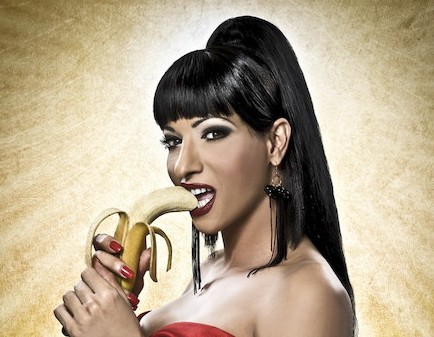
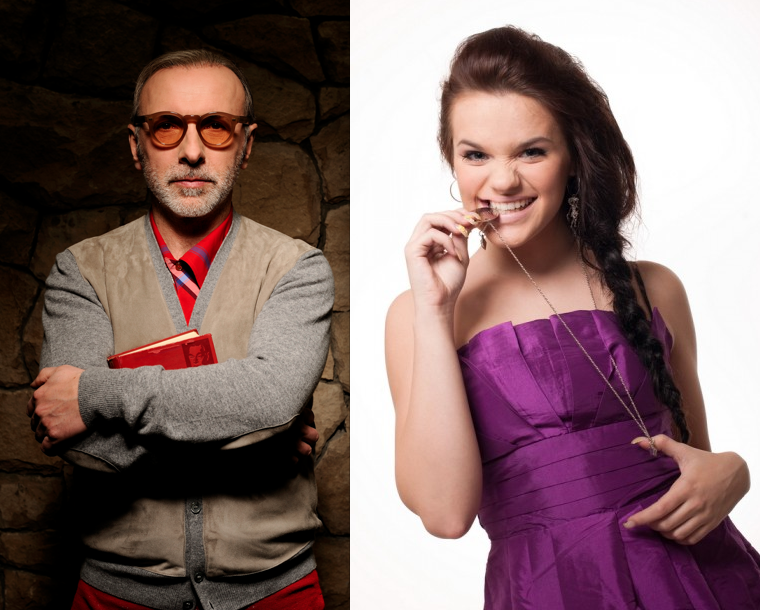
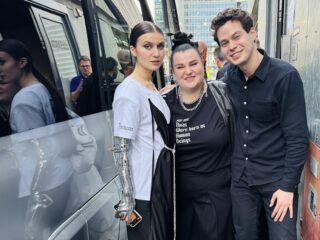


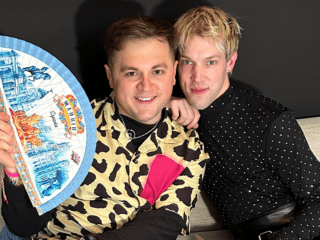
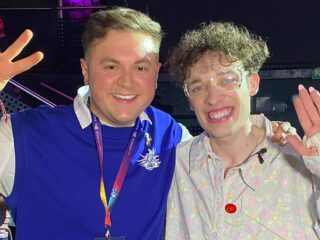
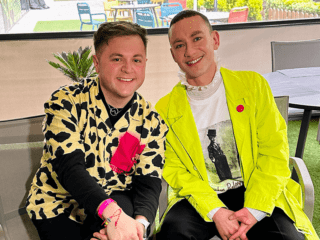

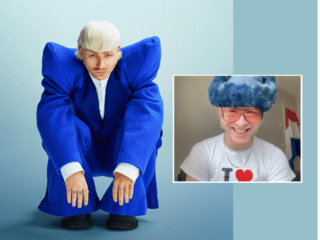
Brilliant! she’s amazing!